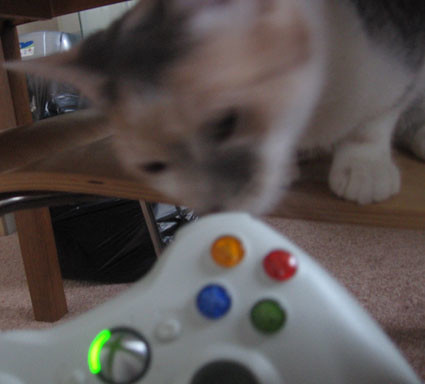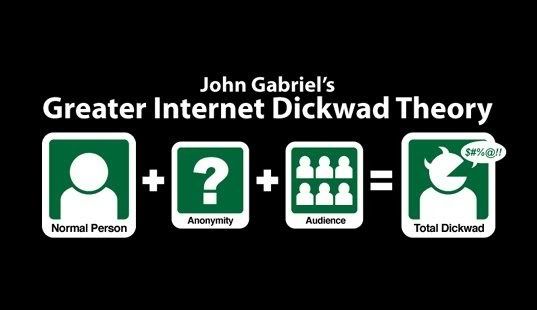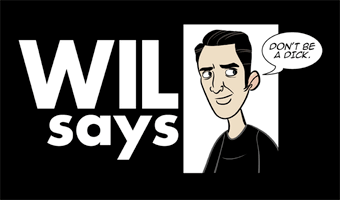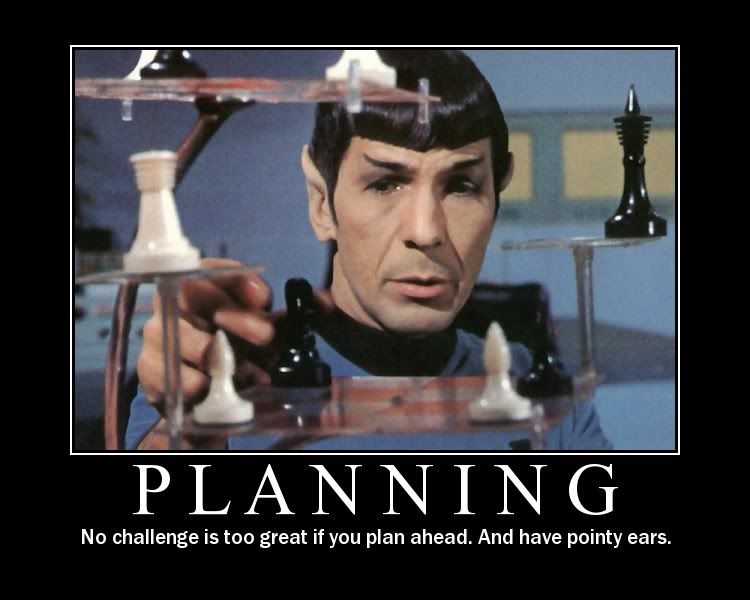
Last night was a little different. Normally on Sunday nights I stay at home with my feet up and possibly lacking a pair of pants, and every other week I twiddle my thumbs while I wait for Classholes time to come around. Not last night, though. About mid-afternoon I put on pants and sallied forth to a friend & co-worker’s house for something a little different. We opened the Red Box.
I never had the red box myself, as a kid. I got into D&D around 2nd Edition, and I had just about wrapped my mind around the nuances and algorithms of THAC0 when 3rd Edition was announced. Naturally, I was frustrated. How dare TSR take away all the complicated algebraic formulae we’d burned lean tissue to memorize! Between 3rd Edition and Star Wars Special Edition, fans had plenty to be butthurt about. 4th Edition, released just two years ago, has been met with a great deal of similar ire from those steadfastly devoted to 3.5, people who’ve turned up their noses at anything new coming out of Wizards of the Coast and opting to play Pathfinder instead.
And now comes the Red Box. D&D for beginners. Hurt butts everywhere.
So when we opened up the box, we found the following:
Bag of dice. Off to a good start.
A two-sided, glossy map with two outdoor locations on one side and an indoor temple/dungeon/really big house on the other. Good for a couple of adventures, sure, but I suspect that unless you slice up the interior locations to be rearranged and thus ruin the outdoor maps, it might get old after a while.
Cardboard counters for heroes, monsters and Action Points. I have to admit, this was really nice. Coupled with the map, a lot of the guesswork and ambiguity is taken out of combat. Yes, there’s something charming about “picturing it in your mind,” but at the same time knowing where you stand in relation to which hulking monstrosity at any given moment is a good thing both as a player and as a DM. For folks just starting out, this is pretty ideal. Painted miniatures and custom maps can come in time, provided you have some to spare. To say nothing of money for pewter and paints.
Character Sheets. It was nice of Wizards to toss these in, and on high-quality paper as well. That said, there’s something somewhat limiting about them. Granted, the contents of the Red Box aren’t intended to take the characters too far past level 2 (more on that later) but giving characters a bit more room to grow beyond the one side of a single character sheet isn’t a bad thing. On the other hand, the blank side of the sheet is great for sketches.
Power Cards. This is where a lot of the butthurt is going to come from when fans of 3.5 check this out. 4th Edition resolved to make things a bit more streamlined and free-flowing, especially in combat, and while this wasn’t necessarily implemented well on all sides — half the skills are gone, which dilutes the versatility of a character somewhat — the Power Cards are probably the best addition to the game. Instead of hunting through the Player’s Handbook or a supplemental guide to find the particulars of a given ability, a player has a set of cards giving the name of the ability or power, what it does and how often it can be used. And… apparently… this is a bad thing?
Player’s Book. This is probably my least favorite part of the new Red Box. Now, granted, I understand why Wizards put it together this way. It’s for the total beginner working solo to introduce themselves to D&D. But when you have a few people looking to try it out with ideas of what they want to play, hunting and picking the particulars of the watered-down character creation rules out of what is essentially a Choose Your Own Adventure book is a bit tedious. Again, I’m not ignorant as to why it is this way, and in terms of getting a kid started in D&D it’s a really neat way of doing it. It’s just not helpful to people starting together as a group, and it feels a little childish in presentation.
Dungeon Master’s Book. Tied into the Player’s Book as it is, there are some rough parts of the DMB. The transition into DMing is presented as a natural extension of the CYOA aspect of the Player’s Book, with an owner of the Red Box lending his or her Player’s Book to another interested player so they can generate their character. You could probably pass the PB around from player to player and let them figure things out on their own, but that’d be an evening in and of itself, more than likely. Other than that, though, I have to say the DMB is a really solid intro to DMing, which might be the biggest hurdle some people have to clear when it comes to D&D. Laying out an adventure, coordinating a dungeon’s encounters and handling things like experience, role-playing and treasure can be daunting when you first decide to try it. The Red Box’s DMB keeps things simple, walks you through rules procedures and even reminds you that the players’ choices are just as important as your dungeon and its denizens. As much as I felt the Player’s Book doesn’t help a party starting out, the DMB does that well, once you get over the rough transitional bits.
So there you have it. Those are the contents of the Red Box and my take on them. But how does it work with new players, or experienced ones for that matter?
Tune in tomorrow, and find out.








